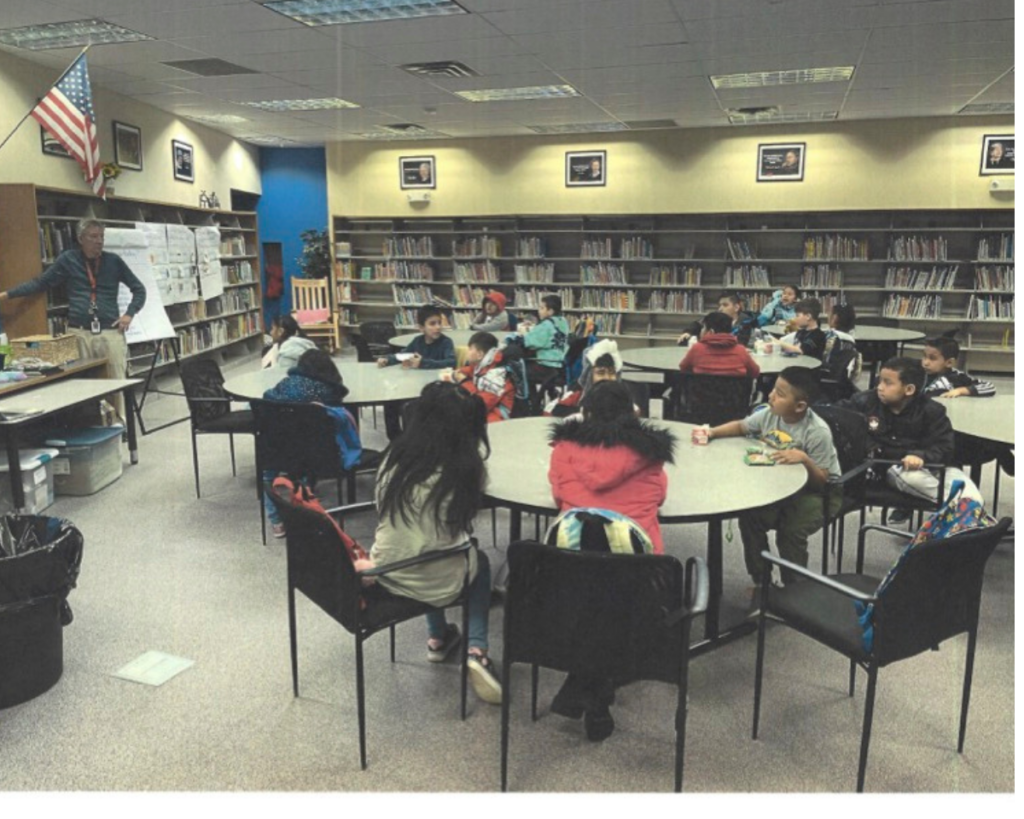Editor’s note: This article was written by Michael Arrieta-Walden. He was an elementary school teacher for 15 years in Oregon and Colorado. Before that, he was a journalist for almost 30 years, leaving The Oregonian as a managing editor for education.
At age 50, I left journalism to become an elementary school teacher. My choice was both a self-aggrandizing and a noble experiment.
I thought that more bright people needed to choose to teach in public schools to improve them. I also wanted to make a difference at a direct, personal level rather than the indirect, broad changes that came through journalism.
As I retire at age 65, I ask a simple question: Did I succeed?
The answer is complex. I feel I undoubtedly made a personal difference. The thanks, hugs, and affection of my students and their families convinced me I had helped them.
But I don’t really know if I truly made a difference beyond them. I frankly am more worried about the state of public education than I was when I made the leap 15 years ago.
Why? My worry stems from several reasons:
- Students have changed. The pandemic disrupted the patterns and routines of school, and shifted the security of. It also deepened the student descent into the isolation of technology, in many ways anathema to the social demands of education.
- Public commitment to education and to children remains low. While teachers initially were cheered at the start of the pandemic, the public sentiment turned on them when schools were shuttered. Teachers became the target of abuse rather than applause. Pay, while higher, has not kept pace with costs.
- Educators are more entrenched than ever. The pandemic offered an opportunity to overhaul a broken system. But no radical changes have occurred, and my own district, Aurora Public Schools, even reverted to less innovation.
Despite my gloomy forecast, I still have hope for public education. Much of that hope lives through resilient students and committed teachers.
I mostly worked with multilingual students whose families came here seeking a better life – and education – for their children. Many of my students had faced traumas far worse than the pandemic, yet they persisted each day.

I also admired many teachers’ commitment. Society has placed increasing demands on them and most of my colleagues met the challenge. They literally work night and day for their students.
But those students and teachers are being failed by a fractured system. They deserve a system that is as committed to their success as they are. Instead, the system perpetuates their struggle.
I think seven major steps that focus on teacher quality would vastly improve public education. Teacher quality is arguably the most important determining factor for a student’s success. We should:
- Revamp how people become teachers.
College education programs lack the rigor needed to produce the strongest teachers. That begins with the caliber of student. Programs should make recruiting students of color the top priority to grow a teaching force that reflects the student population. Schools also don’t provide adequate training for student teachers.
Consider expanding the training period for teachers, similar to a medical residency. Teachers could receive a stipend, and the schools could help pay back college costs. My daughter went back to school to become a veterinary technician; the program is much more demanding both in coursework and internships than what I faced in graduate school, and I earned a master’s.
- Pay teachers what they deserve.
Most teachers I know did not become educators for the pay, but several teachers I know left because of the pay. Many teachers work two, sometimes three, jobs to earn a living wage. If you want to attract – and keep – exceptional teachers, you need to pay them more than glorified babysitters. Contrary to what people believe, most teachers do not have three months off in the summer. Teachers take classes and districts are starting earlier and earlier with professional development. And that doesn’t begin to include extra time spent preparing for a new class of students.
- Remove bad teachers
While teachers should be paid more, bad teachers should not be allowed to continue harming children. Improve training and pay, and you’ll be able to expect quality teaching. Demand nothing less.
- Emphasize relationships through structures
Post-pandemic behaviors have been challenging for teachers. It’s as if students forgot how to behave in school. Building relationships is vital to help students feel safe and ready to learn. But in most schools, teachers spend a year building those relationships with students and families, and then start all over again the next year with new students.
More public schools should follow the models of Montessori and Waldorf schools that enable teachers and students to stay together for at least two years. This process, called looping, has been shown to improve academic gains for students. But even more important, deeper connections can be made with students and families.
- Radicalize the school schedule
The school calendar is based on the antiquated notion of matching harvest seasons. So each year students suffer a loss of learning over the summer that takes months to recapture. Limiting summer break and lengthening the school year will accelerate student gains.
- Enable teaching of science and social studies
With the overemphasis on math and literacy testing, schools have severely limited the teaching of science and social studies. I have taught in schools where there is no time for either. Yet students are most engaged in science, and is it any wonder that our country is fraying when students don’t know our history or basic civics? Science and social studies should be used to teach literacy and English as a second language.
- Focus on teaching, not technology
One benefit of the pandemic was that teachers, students and families became more adept at using technology for learning. But technology has become a crutch for teachers. Students spend too much unproductive time online. Teachers need to be intentional about the use of technology, and play to their strengths – instructing students.
We should make the commitment to raising the quality of teaching. We should build a system that rewards innovative teachers while holding them accountable.
I would make the same career choice all over again because of the students, but they deserve much, much more.




